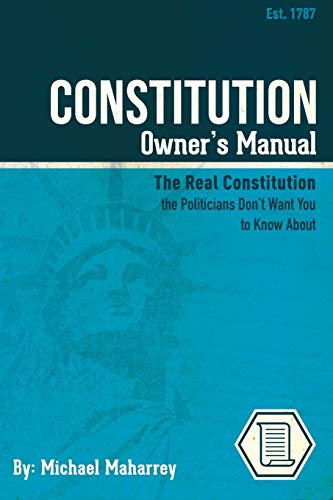Police Circumventing Warrant Requirements By Purchasing Data from Private Vendors
John Adams warned us that if we give government an inch, it will take a mile.
“The nature of the encroachment upon the American Constitution is such, as to grow every day more and more encroaching. Like a cancer, it eats faster and faster every hour.”
We’ve seen this play out dramatically when it comes to the Fourth Amendment.
The courts have created all kinds of exceptions to the Fourth Amendment. But the government continues to push for more and look for ways to circumvent the restrictions on searches and seizures currently in place.
In the latest ploy to gobble up as much personal information as possible, state and federal law enforcement agencies have turned to buying information from private data miners. According to a report from LawFare Media, buyers of private data include the Department of Homeland Security, the Internal Revenue Service’s Criminal Investigations Division, the Defense Intelligence Agency, and police departments across the country.
If government agents collect the same data directly from cell phones or internet providers, they would have to get a warrant. However, government attorneys argue that purchasing data from private brokers does not violate the Fourth Amendment because once the data becomes “public,” the expectation of privacy disappears. Furthermore, most user agreements stipulate that third parties may collect data. Since customers agree to the TOS, government lawyers contend that they effectively give up their right to privacy.
According to LawFare, there was a big uptick in government data purchases after the Supreme Court opinion in Carpenter v. U.S. prohibited warrantless collection of cell phone location data.
“It’s likely that Carpenter’s prohibition motivated agencies to purchase the location data they could no longer obtain for free. This data can be quite useful in criminal investigations.”
In fact, this kind of data isn’t readily available to the public. Most information is anonymized and aggregated. However, some private companies give government agencies access to specific data from specific devices. As LawFare explains, “The companies selling these services market and sell exclusively to law enforcement and often participate in the surveillance process by helping to deanonymize cell phones or track individual users. There’s no store where members of the public and cops can go to buy personal data about individuals. The reality is something far different and much more familiar—specialized vendors selling advanced surveillance tools to government agencies.”
Many of these companies keep their activities under wraps by requiring non-disclosure agreements. Some even prohibit law enforcement agencies from mentioning them during court proceedings. To work around this problem, investigators often reverse engineer cases, secretly using purchased data to generate leads and then getting warrants to legally “discover” information they already collected warrantlessly.
WHAT TO DO?
We can’t depend on courts to rein in data purchasing. Courts tend to defer to government arguments when it comes to criminal investigations. And given the current state of Fourth Amendment jurisprudence and the erosion of privacy protections by court precedent, the argument that there is “no expectation of privacy” could easily prevail.
Instead of hoping courts will protect us, we should adopt a different strategy – advance state and local laws prohibiting law enforcement agencies from obtaining or using data sold by third parties without a warrant.
Even if courts allow it, specific prohibitions against obtaining or using warrantless data stop the process in its tracks. While the success of legislative initiatives isn’t guaranteed, people can wield significant influence over their elected representatives, especially at the local and state levels. This is a much better strategy than depending on the whim of unaccountable federal judges
.
By prohibiting law enforcement agencies from “obtaining” warrantless data, states and localities can also stop data shared by other state and federal agencies.
It has become standard practice for law enforcement agencies to upload warrantless surveillance data gathered at the state level to federal fusion centers operated by the Department of Homeland Security (DHS) and other federal agencies. Fusion centers serve as clearinghouses for all kinds of information shared between federal, state and local law enforcement agencies—including data gathered by surveillance cameras, drones, intercepted cellphone and email communications, social network spying, as well as ALPRs and other invasive modes of surveillance. The DHS funds and ultimately runs 79 fusion centers across the U.S. The DHS describes homeland security intelligence/information fusion as the ”…process of managing the flow of information to support the rapid identification of emerging terrorism-related threats requiring intervention by government and private-sector authorities.”
Fusion centers were sold as a tool to combat terrorism, but that is not how they are being used. The ACLU pointed to a bipartisan congressional report to demonstrate the true nature of government fusion centers: “They haven’t contributed anything meaningful to counterterrorism efforts. Instead, they have largely served as police surveillance and information sharing nodes for law enforcement efforts targeting the frequent subjects of police attention: Black and brown people, immigrants, dissidents, and the poor.”
Fusion centers operate within a broader federal system known as the “information sharing environment” or ISE. According to its website, the ISE “provides analysts, operators, and investigators with information needed to enhance national security. These analysts, operators, and investigators…have mission needs to collaborate and share information with each other and with private sector partners and our foreign allies.” In other words, ISE serves as a conduit for the sharing of information gathered without a warrant. Known ISE partners include the Office of Director of National Intelligence which oversees 17 federal agencies and organizations, including the NSA. ISE utilizes these partnerships to collect and share data on the millions of unwitting people they track.
When states limit the data and information law enforcement agencies can collect, it minimizes the amount of information and data that can end up in this federal information-sharing pipeline. Simply put if the data is never gathered in the first place, it can’t be shared.
Campamento Tortuguero Playa Hermosa is a turtle sanctuary on Bonfil Beach outside of Acapulco that rescues sea turtle eggs that would be likely destroyed by vehicles on the beaches or pilfered by tourists. The sanctuary protects the eggs, hatches them and releases the babies into the ocean while protecting them from seagulls and other winged predators.
The 35-year-old sanctuary is run by the mother/daughter duo of Monica and Michel Vallarino, who have helped educate the community and the tourists on the ecology of the turtles while simultaneously providing a refuge for puppies, kittens, ducks, rabbits, and other wayward animals.
The Art of Liberty Foundation hosted an annual fundraiser from 2018-2020 called the Art of Liberty on the Beach (aKa The Turtle Party), where many of the leading artists in the liberty movement have rocked the sanctuary including Grant "Prezence" Ellman, Truniversal/Free Willow, Alais Clay, the Freenauts, DJ Koala, DJ Ramiro Romani and ELA-mental among others.
The sanctuary was devasted by Hurricane Otis, a category five hurricane that hit Acapulco and Bonfil Beach on November 2nd 2023.
25% of Funds Raised Will Benefit Other Residents of Bonfil Beach
The Art of Liberty Foundation is organizing a fundraiser where 100% of the proceeds will go to direct relief. The Vallarinos have agreed to share 25% of the proceeds with other Bonfil Beach residents in need to be distributed at their discretion.








We should also stop doing business with companies that have these allowances in their TOS.